
When it comes to domestic chores, dishwashing is always on the list. For some, it’s a satisfying task that allows them to see the immediate results of their efforts. But for others, the thought of using a dishwasher brings about a sense of dread and annoyance. In this article, we will explore the reasons why some people hate dishwashers and prefer to wash their dishes by hand.
One of the main complaints about dishwashers is that they can’t always be trusted to clean dishes properly. There is always that one plate or cup that remains dirty no matter how many times it goes through the dishwasher cycle. This leaves people wondering if they should just hand wash their items to ensure they are truly clean.
Another reason why some individuals dislike dishwashers is the need to pre-rinse dishes before loading them. Many dishwashers require the dishes to be thoroughly rinsed before placing them inside, negating the convenience of the appliance. This adds extra time and effort to the dishwashing routine, making it a less appealing option.
Furthermore, dishwashers can be time-consuming. While it may save time in terms of physical effort, the overall process can still be lengthy. A dishwasher cycle can take anywhere from 1 to 3 hours, depending on the settings. For those who need their dishes cleaned quickly, hand-washing may be a more efficient choice.
Additionally, some people are concerned about the energy consumption of dishwashers. The amount of water and electricity used by these appliances is a valid concern for those who are conscious of their environmental impact. Hand-washing dishes, on the other hand, allows individuals to control the amount of water and energy used.
Hand-washing dishes also provides a sense of satisfaction and control. Some individuals find the act of washing dishes by hand to be therapeutic and calming. The tactile sensation of scrubbing away dirt and grime is satisfying in a way that an impersonal dishwasher cannot replicate.
Moreover, dishwashers pose a risk to delicate items. Fine china, crystal glasses, and other fragile pieces can be damaged in the dishwasher if not handled properly. Washing such items by hand ensures their safety and prolongs their lifespan.
Additionally, hand-washing allows individuals to verify that their dishes are actually clean. There is no need to wonder if the dishwasher did a thorough job or if certain utensils were missed. Seeing and feeling the clean dishes firsthand provides peace of mind.
Lastly, some people simply prefer the familiar and human touch of hand-washing dishes. It allows them to take a break from technology and connect with their household chores on a more personal level. It’s a time-consuming task, but for those who hate dishwashers, hand-washing is a free and satisfying alternative.
In conclusion, while dishwashers can be a time-saving and convenient appliance, there are valid reasons why some people dislike them. The lack of trust in their ability to clean, the need for pre-rinsing, the time-consuming cycles, the energy consumption, the risk to delicate items, the desire for control and satisfaction, and the preference for a more hands-on approach are all factors that contribute to the hatred of dishwashers. Whether you’re on Team Dishwasher or Team Hand-Washing, the choice ultimately comes down to personal preference and individual needs.
Not All Dishes Are Dishwasher Safe
One of the downsides of using a dishwasher is that not all dishes are dishwasher safe. This can be a problem for many households, especially if they have a large number of dishes that can’t be washed in the dishwasher.
When it comes to dishwashing, many people assume that all dishes and utensils can be safely placed in the dishwasher. However, this is not the case. Certain materials and finishes are not suited for the high temperatures and harsh cleaning agents used in dishwashers.
For example, delicate glasses and fine china may not withstand the heat and pressure of the dishwasher. Putting these items in the dishwasher can cause them to become damaged or even break. It’s always important to check the manufacturer’s instructions or labeling on your dishes to verify if they are dishwasher safe.
Additionally, some dishes may have decorative elements or coatings that are not dishwasher safe. Non-stick cookware, for instance, is typically not recommended for dishwashing as it can get damaged or lose its non-stick properties.
Even items that don’t have specific warnings may still not be suitable for the dishwasher. For example, wooden utensils or cutting boards can absorb water and become warped or cracked when exposed to the dishwasher’s heat and moisture.
If you’re unsure whether a specific dish or utensil can be safely washed in the dishwasher, it’s best to err on the side of caution and wash it by hand. Taking the time to hand-wash fragile or delicate items can help preserve their quality and appearance.
In summary, not all dishes are dishwasher safe, and it’s important to check the manufacturer’s recommendations. Always wash fragile or delicate items by hand to prevent damage.
They Aren’t Suited to Small Households
Dishwashers are a convenient appliance for many households, but they may not be the best option for small households. Here are 8 reasons why:
- Related to time-consuming: Dishwashers are not always time-saving for small households. If you only have a few dishes to wash, it may be easier and quicker to wash them by hand yourself.
- Less energy-efficient: Small households usually have smaller loads of dishes to wash. Running a dishwasher with a small load can waste water and energy, resulting in higher utility bills.
- Verification of cleanliness: When you wash dishes by hand, you can visually inspect and verify that every item is cleaned. With a dishwasher, you may still need to rinse or scrub some dishes before placing them inside to ensure they come out clean.
- Potential for damage: Delicate dishes or items with special care instructions may not be suitable for the dishwasher, as the high heat and water pressure can cause damage.
- Not suitable for every dish: Some dishes, like wooden cutting boards or certain types of copper cookware, should not be washed in a dishwasher. This limits the types of items that can be cleaned using a dishwasher.
- Hard water issues: If your household has hard water, the minerals in the water can leave spots and buildup on your dishes, making them look dirty even after being washed in the dishwasher.
- Human touch and satisfaction: Washing dishes by hand allows you to physically feel the cleanliness of each item. This tactile experience can be satisfying for some people, and they may prefer the satisfaction of hand-washing over using a dishwasher.
- Frequency of use: If your household only generates a small number of dirty dishes throughout the week, running the dishwasher may not be necessary every day. This can lead to wasted water and energy if the dishwasher is run with small loads or on a less frequent basis.
While dishwashers offer convenience and time-saving benefits for many households, they may not be the ideal option for small households. Depending on your specific needs and preferences, you may find that hand-washing dishes is a more suitable and satisfying alternative.
Your Dishes Don’t Always Come Out Clean

One of the downsides of using a dishwasher is that your dishes don’t always come out perfectly clean. While dishwashers can save you time and effort compared to hand-washing, they are not infallible when it comes to getting your dishes spotless.
1. Not being rinsed properly: One of the main reasons why dishes don’t come out clean is because they are not rinsed properly before being placed in the dishwasher. Food particles and residue can get stuck on your plates and glasses, and the dishwasher may not be able to remove them completely.
2. Small or delicate items: Some small or delicate items that are not suited for dishwasher cleaning may not come out clean. This includes items like wooden utensils, delicate crystal glasses, or certain types of plastic that can be damaged in the dishwasher.
3. Too much in one load: If you overload your dishwasher, the dishes may not come out clean. The water and detergent need sufficient space to circulate and clean your dishes effectively. So if you cram too many dishes into one load, they may not get cleaned properly.
4. Related dishwasher issues: Sometimes, the dishwasher itself can be the culprit for dishes not coming out clean. There may be issues with water temperature, water pressure, or the detergent dispenser. It’s important to verify that your dishwasher is working properly before blaming the dishes for not being clean.
5. Expensive dishwasher models: While a high-end dishwasher may come with a hefty price tag, it doesn’t guarantee that your dishes will always come out clean. Even the most expensive dishwasher models can have their limitations. It’s essential to research and read reviews to find a dishwasher that meets your specific needs.
6. Energy-efficient dishwashers: Energy-efficient dishwashers use less water and energy, but this can sometimes result in dishes not being cleaned effectively. To save resources, these dishwashers may use less water or lower water temperatures, which may not be sufficient to remove tough stains and grime.
7. Dirty dishes before loading: If your dishes are already dirty before loading them into the dishwasher, they won’t magically become clean. It’s important to give your dishes a quick rinse or scrape off any excess food particles to ensure cleaner results.
8. Inappropriate dishwasher setting: Using the wrong dishwasher cycle or settings can also affect the cleanliness of your dishes. For example, choosing a quick cycle when your dishes have tough stains or using settings that are not suitable for delicate items can result in subpar cleaning performance.
So, while dishwashers can be a time-saving and convenient appliance, they are not always guaranteed to deliver spotlessly clean dishes. It’s essential to keep these factors in mind and take the necessary steps to maximize the cleaning performance of your dishwasher.
Your Dishes Can Come Out Damaged
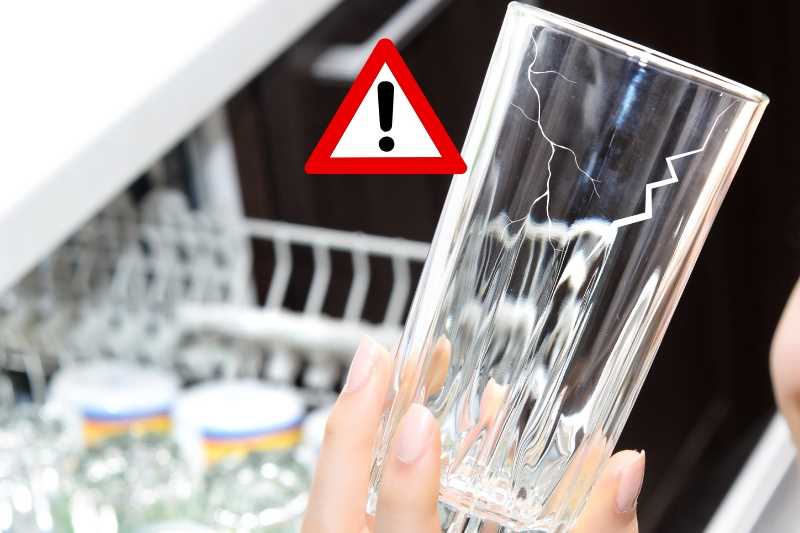
When using a dishwasher, one of the downsides is that your dishes can sometimes come out damaged. While dishwashers are usually satisfying and time-saving, there are a few reasons why they may not always be suited for all types of dishes.
1. Small Amount of Dishes
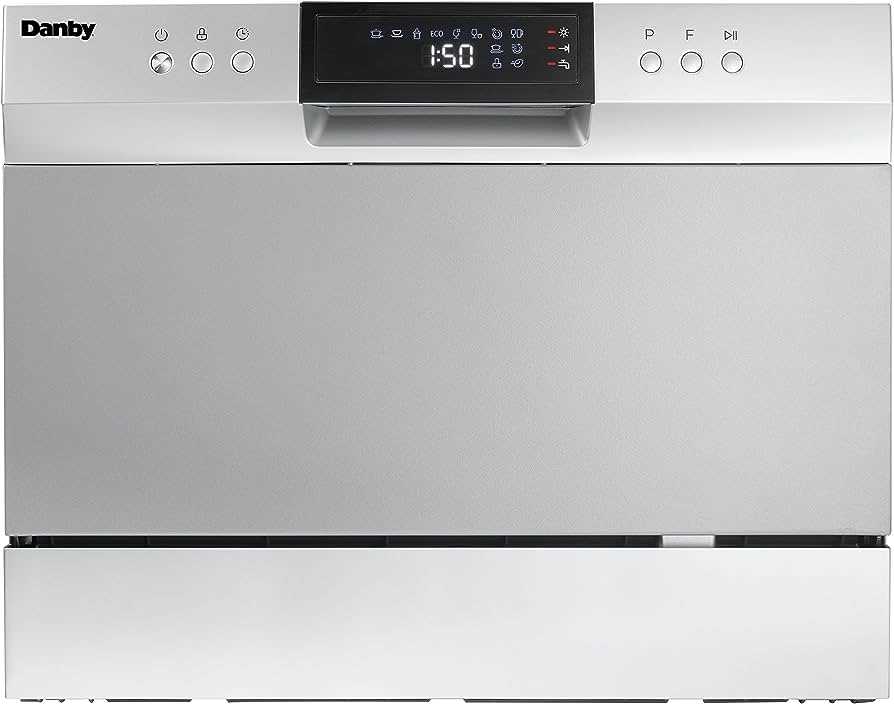
If you only have a small amount of dishes to clean, using a dishwasher may not be the best option. It takes a certain amount of dishes to fill up a dishwasher, so if you only have a few, it’s more energy-consuming and time-consuming to run the dishwasher for such a small load.
2. Delicate or Fragile Dishes
Delicate or fragile dishes, such as fine china or crystal glassware, may not withstand the intense water pressure and heat in a dishwasher. These types of dishes are better off being hand-washed to prevent any damage.
3. Uncleaned Food Residue
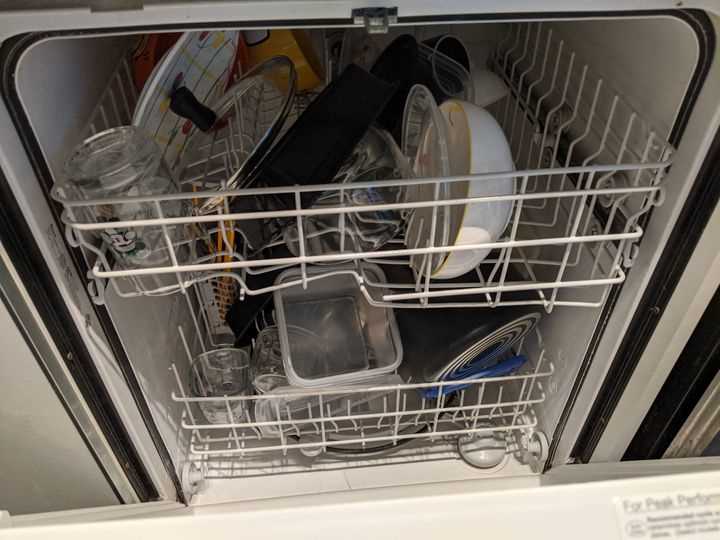
One important thing to note when using a dishwasher is to always verify that the dishes have been thoroughly rinsed before placing them in the dishwasher. Dishwashers are not meant to scrub off dried or stubborn food residue, so if the dishes are not clean before loading, they will not come out clean after the wash cycle.
4. Being Packed Too Full
Another reason why dishes may come out damaged is when the dishwasher is packed too full. When dishes are crammed tightly together, there is a higher chance of them bumping or scratching each other during the wash cycle.
5. Dishwasher Safe?
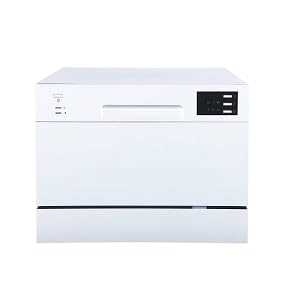
While most dishes are labeled as dishwasher safe, there are some that may not be. Some materials, like certain plastics or wooden utensils, may be prone to warping or deteriorating when exposed to the high temperatures and strong detergents used in dishwashers. It’s important to check whether your dishes can safely be washed in a dishwasher.
6. Expensive or Valuable Dishes
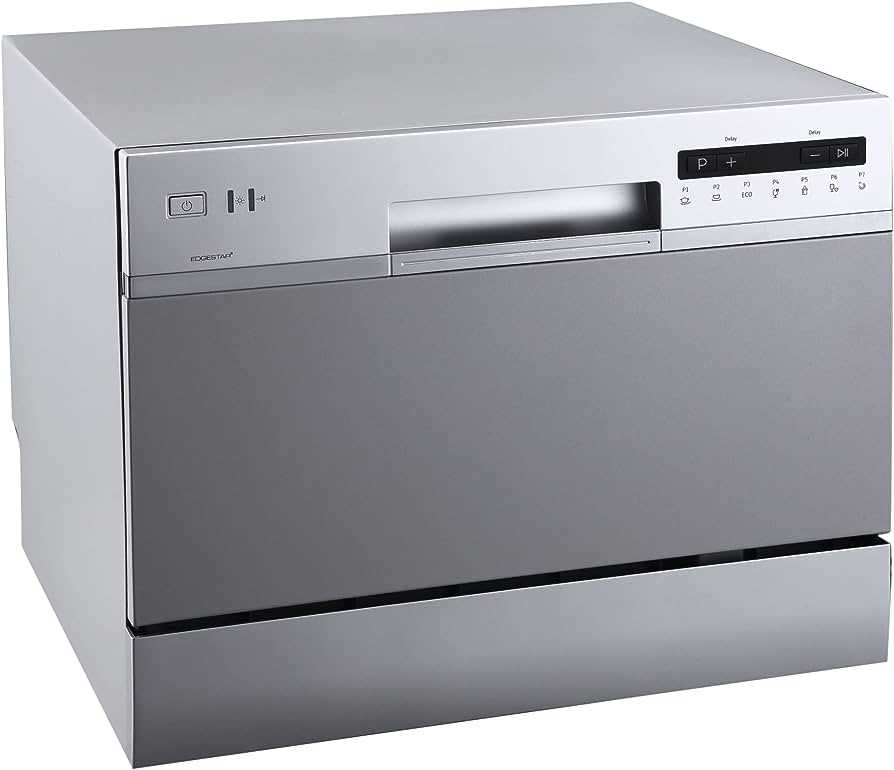
If you have expensive or valuable dishes, you may want to hand-wash them to ensure their longevity. The dishwasher may not provide the same level of care and attention as you would when washing these dishes by hand.
7. Domestic Dishwasher
Households that have a domestic dishwasher may experience more issues with dish damage compared to those with commercial-grade dishwashers. Domestic dishwashers are typically not as powerful or thorough, which can lead to dishes coming out less clean or more damaged.
8. Time-Consuming Inspections
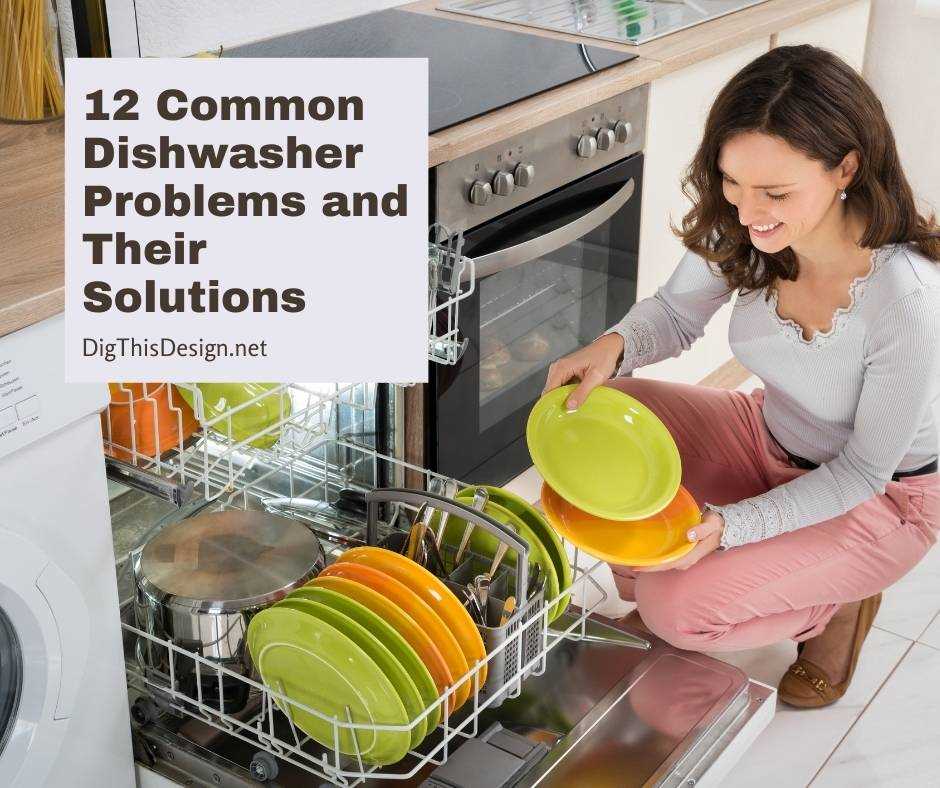
It’s not uncommon for someone to find a dish in the dishwasher that didn’t come out clean or was damaged during the wash cycle. This means that you may have to spend extra time inspecting each dish after it goes through the dishwasher, which can be time-consuming and take away from the convenience of using a dishwasher.
In conclusion, while dishwashers can be a convenient and time-saving appliance, there are certain situations where hand-washing is still the better option. Delicate or valuable dishes, small loads, uncleaned food residue, and packed dishwashers can all lead to damaged dishes. It’s important to consider these factors and decide whether a dishwasher is the best choice for your specific needs.
They Are Expensive
One of the downsides of dishwashers is that they can be quite expensive. Usually, domestic dishwashers range in price from $200 to $2,000, depending on the brand, features, and capacity. There are also additional costs to consider, such as installation, maintenance, and repairs.
While dishwashers can be seen as an investment that saves time and effort in the long run, there are some households that might find it hard to justify the upfront cost. For those who are on a tight budget or have other financial priorities, purchasing a dishwasher may not be feasible.
Another aspect to consider is the energy consumption of dishwashers. Although they are designed to save water and energy compared to hand-washing, they still require electricity to operate. This can lead to higher utility bills, especially if the dishwasher is used frequently.
Additionally, dishwashers may not be suitable for all types of dishware. Delicate items such as crystal glasses or antique china may be too fragile to be cleaned in a dishwasher. There is also the risk of some items getting damaged or warped due to the heat and water pressure inside the dishwasher. Therefore, some individuals prefer to wash these items by hand to ensure their safety.
In conclusion, while dishwashers offer convenience and time-saving benefits, they are not without their drawbacks. The cost of purchasing, installing, and maintaining a dishwasher can be a significant investment, making it unaffordable for some households. Additionally, the energy consumption and potential risk to delicate items may also deter people from using dishwashers. Ultimately, the decision of whether to invest in a dishwasher or opt for hand-washing is a personal one, based on individual needs and preferences.
FAQ
Why are dishwashers expensive?
Dishwashers are expensive because they are complex appliances that require advanced technology and engineering. They are also built to last for many years, so the cost is justified by their durability.
Do dishwashers damage dishes?
Yes, dishwashers can damage dishes if they are not loaded properly or if the wrong cycle is selected. The high temperatures and strong jets of water can cause breakage or chipping. It is important to follow the manufacturer’s instructions and use a gentle cycle for delicate dishes.
Is it necessary to rinse dishes before putting them in the dishwasher?
Yes, it is necessary to rinse dishes before putting them in the dishwasher. While dishwashers are designed to remove food particles, heavily soiled dishes may not come out clean. Pre-rinsing helps to ensure the best cleaning results.
Are dishwashers suitable for small households?
Dishwashers may not be suited to small households because they require a certain amount of dishes to be loaded in order to run efficiently. If there are not enough dishes to fill the dishwasher, it may not be cost-effective or energy-efficient to run it.
Do dishwashers consume a lot of time?
Yes, dishwashers can be time-consuming. Loading and unloading the dishwasher takes time, and if the dishwasher is not loaded properly, it may require additional time to rewash dishes that did not come out clean.
Why do some people hate dishwashers?
Some people hate dishwashers for a variety of reasons. They may find them expensive, damaging to dishes, not suitable for their household size, time-consuming, and not always effective in cleaning dishes.
Do dishwashers always clean dishes thoroughly?
No, dishwashers do not always clean dishes thoroughly. Factors such as improper loading, inadequate rinsing, and using the wrong cycle can result in dishes that are not fully clean. It is important to follow the manufacturer’s instructions and guidelines for optimal cleaning results.
















